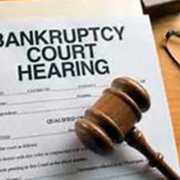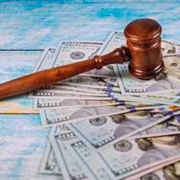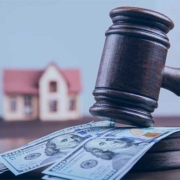Guest Blog- by Oak View Law Group, Author Ian Caldwell
Being in debt is not always bad. Are you astonished? You shouldn’t. Every experience teaches you some valuable things in life, and “being in debt” is not an exception. Though it is not advisable to invite “debt” in your life. However, experiencing debt problems teaches you some valuable aspects of ‘money’ and ‘money management’ which perhaps is difficult to learn. One thing is sure. Being in debt once will perhaps help you on how to ?avoid debt problems for the rest of your life.
A person, who has successfully got out debt, knows the following:
One cannot run away from the problems – One of my friends once told me that she used to avoid the problems and she was scared to face it. What happened was she increased her debt load. This taught her a lesson that instead of avoiding the debt problems, she needs to face it head on. So, if you’re in debt, address the issues and find a way to solve the problem. You may find credit card consolidation to be one effective way of overcoming your debt-related troubles. In addition to this, there are so many professionals out there that are experts at helping people in your situation. Whether your debt is small or you are in personal bankruptcy, have a look around for a company like Bankruptcy Alberta who can be there to help.
To plan a suitable budget –Budgeting is the most basic aspect of financial management and no one knows this better than a person who has experienced major debt problems. To be debt free, you have to plan a suitable budget, which can help you save a decent amount as per your situation. Planning a “suitable budget” might be a bit difficult for you initially, but with time, you’d be able to master the art. With initial hiccups, gradually, you’ll come to know what works for you the best.
To set savings goals –Can you be successful in life without a goal? Definitely ‘No’. Similarly, you need to have savings goals to achieve your financial goal – be it becoming debt free or building a solid financial future. The goal which you set should be achievable so that it motivates you to achieve it within the period you’ve thought. Set a definite amount. For example, you want to repay $1000 within 2 months or want to save $12,000 in a year, etc.
To make savings automatic –If you opt for automatic savings, then you won’t have to worry about saving a required amount every month. You will first save and then spend the remaining amount. Though it might become a bit difficult initially since you’ll have less amount to spend along with managing your required bill payments.
Not to hesitate to start small –Are you thinking that your salary is too less to start saving a decent amount every month? If you have experienced debt problems, you know that you need to save and meet your daily necessities irrespective of your paycheck amount. If you think wisely, you’ll find that saving a small amount is not so difficult. For example, you can start by saving at least $25-$50 every month. This way you can save at least $100 a month, which you can use to reduce your debt load or increase your savings. Just think – saving $100 a month is actually saving $1200 annually. By doing so, the habit of saving will be reinforced and you’ll be motivated to save more.
To look for an extra earning opportunity –An extra income every month is always a bliss. So, don’t worry about how much you’re earning from a part-time job. A person struggling to overcome debt problems can use this amount to get out of debt. A person in debt knows the significance of an extra earning opportunity. To earn extra, you can look for summer jobs or event-oriented jobs. Some retailers employ extra people during Labor Day and Thanksgiving Day sales since they have to cater to a comparatively large number of customers. You can look for these jobs to earn some extra dollars.
Live with debt for some time –A person who has solved his/her debt problems knows that he/she will have to accept the situation of being in debt and have to live life with it for some time. This doesn’t mean that he/she has to focus only on paying off debt. Definitely, getting out of debt will be one major aspect but he/she has to pay attention to other day-to-day things, too.
So, if you’re struggling to overcome your debt problems or want to avoid falling in debt, practice these strategies and you can be assured that you’re on the right track of managing your finances effectively. You can also look at contacting businesses such as CreditAssociates to help you manage your debt in the best way possible for you.
Related Articles
Unpaid Debt and the Statute of Limitations
Debt Collection Calls
Debt Collector’s Calling?
Carol A. Lawson, Esq., 28870 U.S. Hwy 19 #300, Hodusa Towers, Clearwater, FL 33761
Phone: (727) 410-2705; email: calh@gate.net
Clearwater Bankruptcy Attorney, Clearwater Bankruptcy Lawyer, Clearwater Bankruptcy, Clearwater Estate Planning Attorney, Pinellas Estate Planning Attorney, Pinellas Probate Attorney #FileLocallyDontOverpay #ClearwaterBankruptcy #ClearwaterBankruptcyAttorney #ClearwaterEstatePlanning #ClearwaterProbate

















